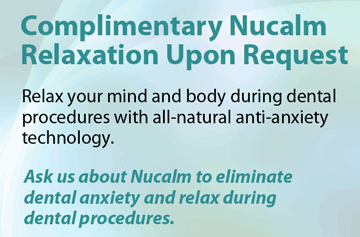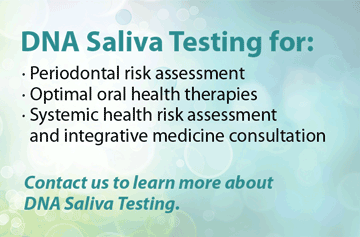
Dementia and Alzheimer’s are debilitating illnesses that can cause immense suffering for both the person affected and their loved ones. These conditions strip individuals of their identity and leave families devastated. Recent research has highlighted the crucial role oral hygiene plays in conditions such as Alzheimer’s and Dementia. In this blog post, we’ll explore the initial indications of dementia and Alzheimer’s and will analyze Dr. Isaac’s treatment plan, which aims to slow down the progression of the disease and prevent its advancement.
Recognizing the Early Warning Signs

It’s crucial to detect early indications of Dementia and Alzheimer’s to prevent and effectively handle the condition and to improve the patient’s quality of life. These diseases often start with mild, inconspicuous signs that may be easily missed. Let’s examine some typical initial warning signs:
- Memory Loss: Forgetfulness, particularly of recent events or important dates, maybe one of the earliest signs of cognitive decline.
- Confusion and Disorientation: Individuals may become disoriented in familiar surroundings or struggle to follow conversations and instructions.
- Difficulty Performing Familiar Tasks: Routine tasks, such as cooking or managing finances, may become increasingly challenging for those affected by cognitive impairment.
- Changes in Mood and Personality: Mood swings, irritability, and withdrawal from social activities are common behavioral changes observed in the early stages of dementia and Alzheimer’s.
- Decline in Language Skills: Difficulty finding the right words or understanding language can indicate underlying cognitive issues.
Understanding the Oral-Brain Connection
Let’s take a closer look at how poor oral health can contribute to cognitive decline. Recent research has identified a number of factors that link the two, including inflammation, harmful bacteria in the mouth, and gum disease. When gum disease develops, it can cause inflammation in the mouth which may spread to the brain and potentially impair cognitive function. Additionally, harmful bacteria from the mouth can enter the bloodstream and cause neurological damage, which can worsen conditions like Alzheimer’s and dementia.

It’s important to take steps to prevent these conditions as early as possible. Eliminating P. gingivalis, known as the “enemy,” is key to preventing Alzheimer’s and dementia. Even if you’ve already been diagnosed with early onset dementia or Alzheimer’s, leaving P. Gingivalis untreated can accelerate cognitive decline up to six times faster. Therefore, it’s essential to get tested for P. Gingivalis and periodontal disease to maintain good mental health.
Furthermore, studies have shown that the severity of gum disease is linked to an increased risk of cognitive impairment. Therefore, it’s crucial to take early action and maintain good oral health. Neglecting oral health can result in tooth loss and reduced ability to chew, leading to dietary changes that may compromise overall health and cognitive function.
Introducing Dr. Isaac Comforte’s Treatment Plan: A Beacon of Hope

Dr. Isaac Comforte’s treatment plan provides hope for individuals facing the early stages of dementia and Alzheimer’s. Here’s how his approach can make a difference:
1. Early Detection: Through regular check-ups and thorough evaluations, Dr. Isaac can identify initial signs of oral health problems that may worsen cognitive decline.
2. Personalized Treatment: Dr. Isaac customizes treatment plans to meet the specific needs of each patient, ensuring that oral health interventions align with their overall well-being objectives.
3. Education and Support: Dr. Isaac empowers patients and their families by sharing knowledge about the connection between oral hygiene and cognitive health. He also offers guidance on preventive measures and lifestyle adjustments.
4. Collaborative Effort: Dr. Isaac promotes collaboration between dental and medical professionals, guaranteeing that patients receive integrated care addressing both oral and cognitive health concerns.
5. Holistic Well-being: Dr. Isaac acknowledges the interconnection of oral health and overall wellness. He emphasizes the importance of proper nutrition, hydration, and stress management in preserving cognitive function.
Promoting Cognitive Well-being Through Oral Health

Dr. Isaac’s treatment plan brings hope to those facing dementia and Alzheimer’s. Through early intervention, personalized care, and a focus on overall well-being, he not only provides medical assistance but also offers comfort and aid to those affected by these devastating conditions.
Recognizing the crucial role that oral hygiene plays in slowing down the progression of dementia and Alzheimer’s is essential. Dr. Isaac’s treatment plan takes a comprehensive approach to care, offering optimism and healing to individuals and families grappling with the impact of cognitive decline. By addressing the underlying causes of oral health issues and cognitive decline, Dr. Isaac helps patients achieve healthier smiles, sharper minds, and more active lifestyles.
Take an important step towards slowing down or even preventing these diseases. Get in touch with Dr. Issac Comfortes and Total Health Dentistry of Encino to schedule an Oral DNA Saliva test and consultation. This straightforward test can help you avoid a lifetime of anxiety or even the acceleration of dementia or Alzheimer’s.





 The general, cosmetic and reconstructive dental practice of Encino dentist Dr. Isaac Comfortes is devoted to restoring optimal oral health, which supports whole body health and enhances the natural beauty of smiles.
The general, cosmetic and reconstructive dental practice of Encino dentist Dr. Isaac Comfortes is devoted to restoring optimal oral health, which supports whole body health and enhances the natural beauty of smiles.